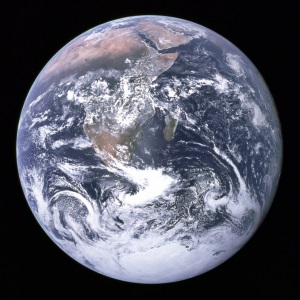IPCC Climate report confirms Manx nationalists call for development of sustainable economy
Last week the Intergovernmental Panel on Climate Change (IPCC) issued an alarming report on global warming. The new report focuses on what impacts we might expect from warming of 1.5 degrees and 2 degrees. The Paris climate agreement negotiated in 2015, set a target of no more than 2°C global warming above pre-industrial temperatures, but also an aspirational target of no more than 1.5°C. This would substantially reduce the risks and effects of climate change. However, there had not been a lot of research into the climate impacts at 1.5°C vs. 2°C. So the UN asked the IPCC to publish a special report summarising what it would take to achieve the 1.5°C limit and what the consequences would be of missing it.
The IPCC report's findings are stark: “Climate-related risks to health, livelihoods, food security, water supply, human security, and economic growth are projected to increase with global warming of 1.5°C and increase further with 2°C.” So the answer is that ANY further warming from today’s already-hot temperatures, which stands at 1°C warmer than pre-industrial levels, increases global risks. Therefore the answer to the IPCC report is to stay below any of these temperature thresholds and that will require aggressive climate policies from countries around the world. In many ways, hard hitting as the IPCC projections are, they tend to avoid certain economic conclusions. They state that the main driver of climate change is “the spread of fossil-fuel-based material consumption and changing lifestyles.” Tending to place the blame on the consumers. However, in doing so failing to mention the more central damaging economic role of corporations, one hundred of which account for 71 per cent of global greenhouse gas emissions.
Nevertheless, the IPCC warnings on global warming are very clear, which is that we are running out of time. The report, states that global net human-caused carbon dioxide (CO2) emissions must fall by 45 percent from 2010 levels by 2030 and reach net zero (a 100% reduction) around 2050. It also acknowledges that high population growth is a “key impediment” to reaching climate targets. Recently the issue of continuous economic growth and population increases to achieve this end was the subject of debate in the Manx media. With some from various progressive nationalist organisations on the Isle of Man, in particular the Mannin Celtic League and Mec Vannin, making the argument that endless economic growth is NOT essential to maintain and improve our quality of life. In fact, as can be drawn from the IPCC report, nothing could be further from the truth. We live on a finite planet and the endless pursuit of economic growth risks destroying the Earth’s capacity to sustain us.
Changing to a more sustainable way of living is clearly the way forward. So the challenge now is to build a successful economy without continuous economic growth and population increases. While at the same time prioritising policies that address things like inequality and access to services. We need to recognise the limitations of a simple focus on gross national product. In the Isle of Man, with the political will, we could be in a good position to develop policies that carefully maintain a balance between population, infrastructure and environment. In doing so, also to ensure the long term viability of the Island's economy, ecology and quality of life. As pointed out by Mec Vannin:
"Protection of the environment should become a primary concern of the Manx Government, and all decisions should be made in the light of this concern. We must acknowledge that there is a finite limit to the economic, social and ecological demands that our environment can support. Mec Vannin proposes that our economic redevelopment should be based upon the principle of sustainable economic growth commensurate with our small size and natural population level."
Intergovernmental Panel on Climate Change (IPCC) Press Release 8th October 2018.







